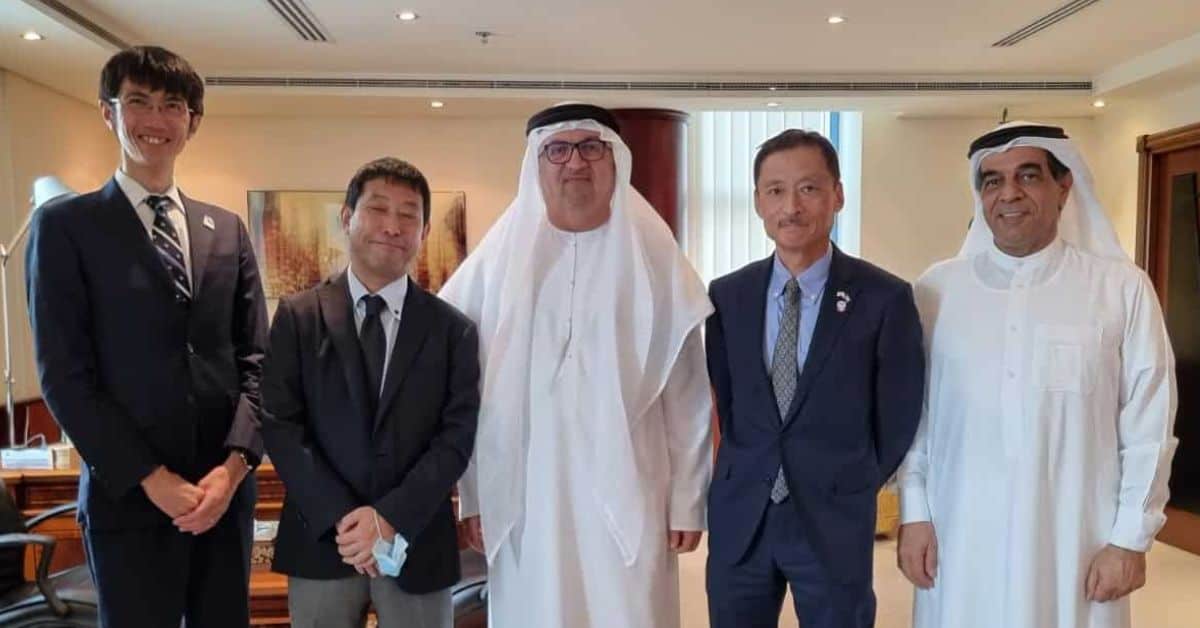TOKYO/DUBAI — The UAE secured 40.1 percent of Japan’s crude oil needs in October, which is equal to 33.99 million barrels, according to the Agency for Natural Resources and Energy in Tokyo.
The agency, part of the Japanese Ministry of Economy, Trade and Industry, stated that the amount of crude that Japan imported during that month amounted to 84.58 million barrels, of which 80.10 million barrels, or 94.7 percent, originated from five Arab countries: UAE, Saudi Arabia, Kuwait, Qatar, Bahrain and Oman.
Oil remains the most significant energy source in Japan, accounting for about 40 percent of the country’s total energy supply, according to the International Energy Agency.
UAE-Japan business council
The Federation of UAE Chambers of Commerce and Industry (FCCI) and Japan External Trade Organisation in Dubai (JETRO Dubai) have agreed on establishing a UAE-Japan business council to promote cooperation and visits between the business communities in both countries.
The formation of the council is aimed at developing joint projects and exchange expertise. The two sides agreed on signing an MoU for setting up the proposed bilateral business council by Q1 2023.
This came during a meeting that brought together FCCI Secretary General Humaid Mohammed bin Salem and JETRO Dubai Managing Director Masami Ando in the presence of officials from both sides.
Bin Salem welcomed Japanese companies to invest in the UAE and take advantage of government incentives, as well as the favourable investment climate and legislation, calling on Emirati and Japanese businesses to explore business opportunities in the two countries and develop active partnerships to boost trade exchange.
Football associations
Last month, UAE Football Association (UAEFA) Chairman Sheikh Rashid bin Humaid Al Nuaimi and Japan Football Association (JFA) President Kozo Tashima reviewed progress in the action plan for the cooperation agreement signed between the two associations.
The meeting was attended by UAEFA Secretary General Mohammed Abdullah Hazam Al Dhaheri and a number of the UAEFA’s board members.
Environmental conservation
Tokyo Governor Yuriko Koike had recently highlighted the strong relations between the UAE and Japan
“We, in Tokyo and Abu Dhabi, are working together on cooperation in all areas, including education and student exchange, which we have already begun to work on,” Koike had said in Cairo on the sidelines of COP 27.
She had hailed the boom witnessed by the UAE in the field of environmental conservation and the use of solar energy, stressing that the UAE has taken advanced steps in the use of solar energy, and is witnessing a great renaissance in this field.
The Governor of Tokyo also indicated the importance of using modern technology to address climate changes.
She drew attention that the UAE is able to host the upcoming COP28 climate summit, thanks to its capabilities and human cadres, which will contribute to the success of the event.
Referring to the strong ties between her countries and the Arab countries, she pointed at cooperation and exchange of visits, in addition to the great similarity in customs and traditions.
Food bond
Japanese food has been popular in the UAE ever since Japanese people started living here several decades ago.
Although Japanese expatriates remain a small community, the popularity of Japanese cuisine has outgrown the community’s size with its cosmopolitan appeal.
The number of food outlets offering Japanese foods in the UAE has made a quantum leap of 163.4 percent in the past decade, highlighting a multicultural society’s growing taste for cosmopolitan cuisine.

